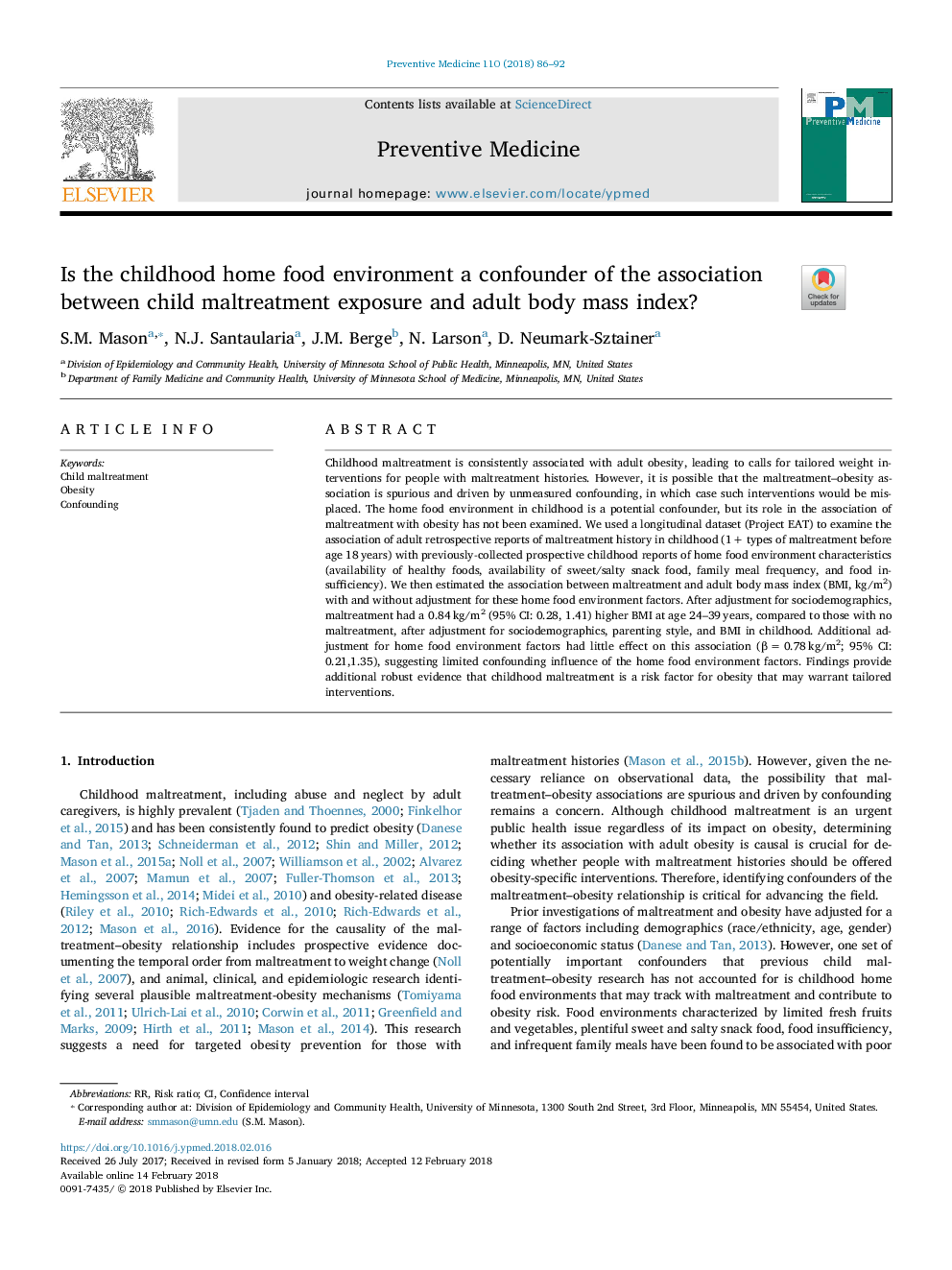ترجمه فارسی عنوان مقاله
آیا محیط غذایی خانه در دوران کودکی مانع ارتباط بین قرار گرفتن در معرض سوء تغذیه با کودک و شاخص توده بدنی بزرگسالان است؟
عنوان انگلیسی
Is the childhood home food environment a confounder of the association between child maltreatment exposure and adult body mass index?
| کد مقاله | سال انتشار | تعداد صفحات مقاله انگلیسی |
|---|---|---|
| 127687 | 2018 | 7 صفحه PDF |
منبع

Publisher : Elsevier - Science Direct (الزویر - ساینس دایرکت)
Journal : Preventive Medicine, Volume 110, May 2018, Pages 86-92

